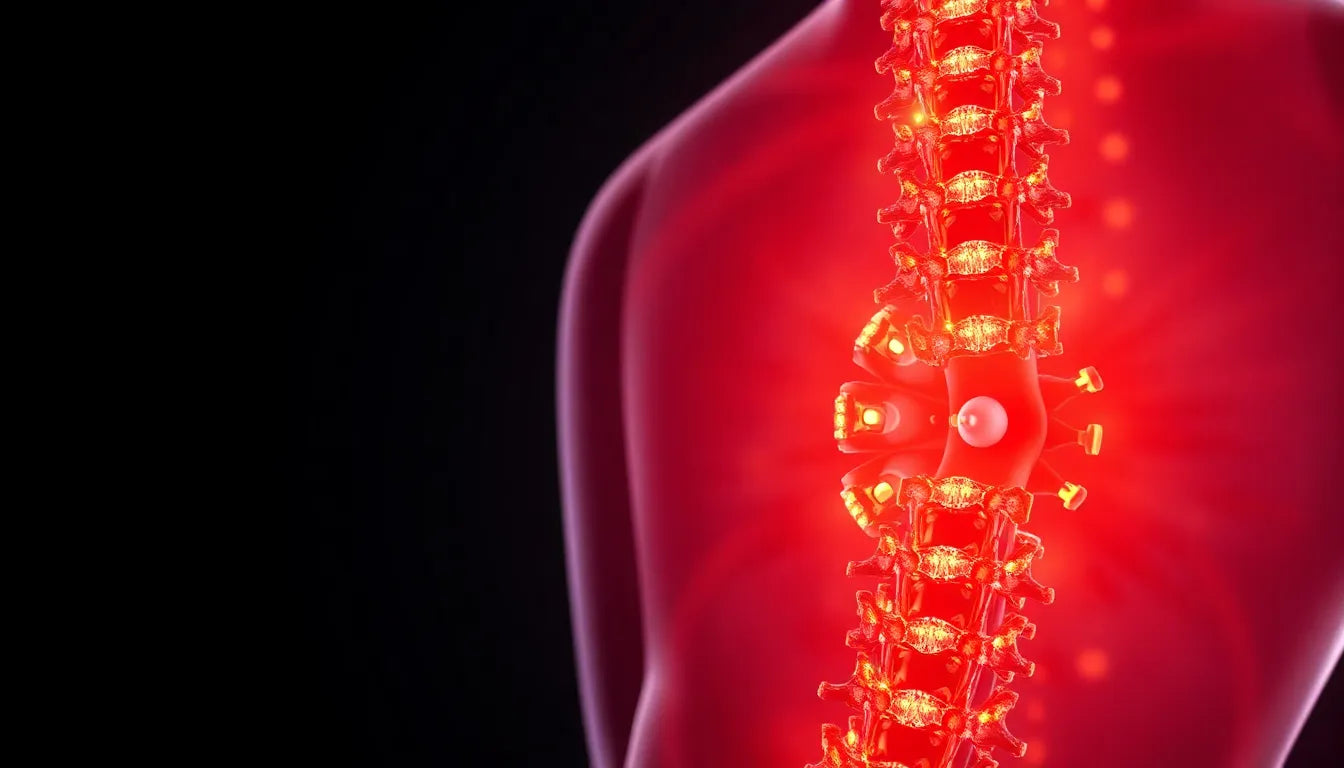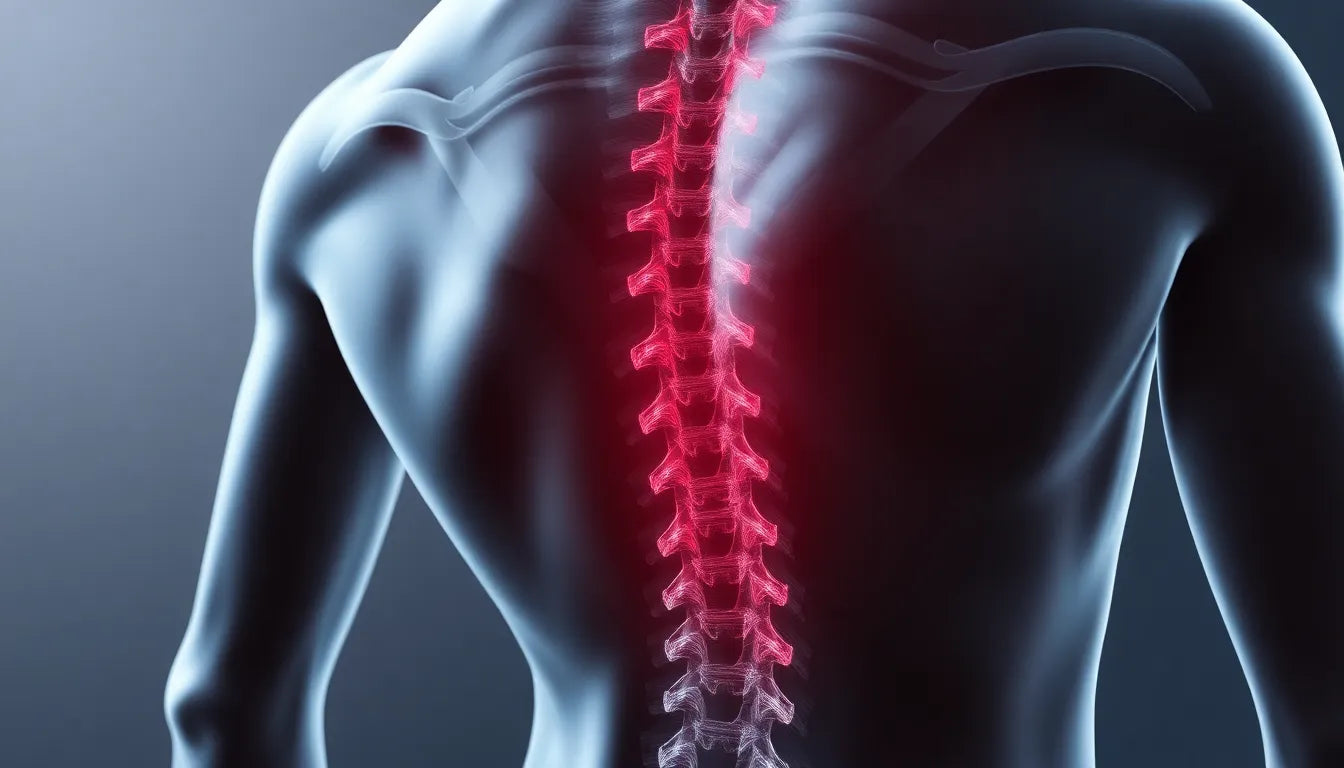For those suffering from a herniated disc, the struggle with pain often becomes more pronounced at night. As the day winds down and you seek the comfort of your bed, the discomfort can intensify, making restful sleep seem elusive. This common experience leaves many wondering: why does herniated disc pain get worse at night? Understanding the reasons behind this phenomenon is crucial for managing and potentially alleviating the discomfort.
the nighttime struggle with herniated disc pain
Herniated disc pain is notorious for its ability to disrupt sleep. As night falls, many individuals notice a significant increase in pain levels, which can lead to restless nights and fatigue during the day. This intensification of pain is not just a figment of the imagination; it has real physiological and lifestyle underpinnings. Addressing these factors can provide a clearer path to managing the pain effectively.
overview of the issue
The escalation of herniated disc pain at night can be attributed to a combination of physiological changes and lifestyle habits. From a physiological standpoint, the way we position our bodies during sleep can have a significant impact on the spine. Lying down, especially in positions that do not support optimal spinal alignment, can increase pressure on the herniated disc, causing it to bulge further and irritate nearby nerves. This added pressure can lead to a marked increase in pain levels.
In addition to body positioning, lifestyle factors also play a role. The quiet and stillness of nighttime can heighten our awareness of pain, as there are fewer distractions compared to the daytime. Furthermore, the body's natural tendency to become more still during sleep can lead to muscle stiffness and reduced blood flow, exacerbating nerve compression and contributing to what many describe as "morning stiffness."
Understanding these dual perspectives—physiological and lifestyle—is essential for anyone looking to manage their herniated disc pain more effectively. By recognizing the factors that contribute to nighttime discomfort, individuals can take proactive steps to minimize pain and improve their quality of sleep. This foundational knowledge sets the stage for exploring deeper insights and practical solutions, which will be discussed in the subsequent sections.
physiological factors: understanding the science behind nighttime pain
When suffering from a herniated disc, the position of your body during sleep plays a crucial role in the intensity of pain experienced at night. Lying down can increase the pressure on the herniated disc, causing it to bulge further and irritate the surrounding nerves. This pressure is exacerbated by improper sleeping positions, such as lying on the stomach or twisting the body, which misaligns the spine and intensifies discomfort. Ensuring proper spinal alignment by using supportive pillows and maintaining a neutral position can help in reducing this pressure.
Another factor contributing to increased nighttime pain is the reduced distraction and heightened awareness that comes with the quiet of night. During the day, various activities keep the mind occupied, diverting attention away from the pain. However, at night, the absence of distractions makes the pain more noticeable and seemingly more severe. This heightened awareness can make it challenging to fall asleep or stay asleep, leading to a cycle of discomfort and fatigue.
Moreover, the lack of movement during sleep can lead to muscle stiffness and reduced blood flow, further aggravating nerve compression. This stillness can cause what is commonly referred to as "morning stiffness," where individuals wake up with increased pain and difficulty moving. Regularly changing positions during sleep or incorporating gentle stretches before bed can help alleviate some of this stiffness.
lifestyle and environmental influences on herniated disc pain
Nighttime pain can also be influenced by environmental factors and lifestyle habits. Cooler temperatures at night can lead to increased muscle tension and spasms, which can exacerbate pain around a herniated disc. Maintaining a comfortable room temperature can help minimize this effect. Additionally, consuming heavy meals or engaging in strenuous activities before bed can increase inflammation, leading to heightened pain levels. Opting for lighter meals and avoiding intense physical activity close to bedtime can be beneficial.
Practical advice for minimizing nighttime pain includes optimizing sleep positions and making environmental adjustments. Sleeping on the back with a pillow under the knees helps maintain spinal alignment and reduces pressure on the herniated disc. Alternatively, side sleeping with a pillow between the knees can also provide relief. Additionally, investing in a supportive mattress and pillows can further enhance comfort and reduce pain.
visual aids for better understanding and implementation
Visual aids can be incredibly helpful in understanding the dynamics of spinal pressure and the impact of different sleeping positions. Diagrams illustrating recommended sleeping positions can guide individuals in making necessary adjustments to their sleep habits. Infographics explaining how spinal pressure changes in various positions can also provide valuable insights into managing herniated disc pain effectively.
By combining an understanding of physiological factors with practical lifestyle adjustments, individuals can take proactive steps to minimize nighttime discomfort. This holistic approach not only improves sleep quality but also enhances overall well-being, allowing for better management of herniated disc pain.
integrating knowledge into practice: managing herniated disc pain at night
Understanding the factors that exacerbate herniated disc pain at night is only the first step. The next crucial phase involves integrating this knowledge into practical lifestyle changes that can help manage and reduce discomfort. Developing a pre-bedtime routine focused on relaxation can significantly aid in reducing muscle tension and preparing the body for rest. Techniques such as gentle stretching, deep breathing exercises, or a warm bath can help relax muscles and ease pain.
Maintaining a consistent sleep schedule is another vital aspect of managing herniated disc pain. Going to bed and waking up at the same time each day helps regulate the body's internal clock, improving overall sleep quality. This regularity can reduce the impact of nighttime pain and enhance recovery.
Professional guidance is also invaluable for those suffering from herniated disc pain. Consulting healthcare providers can provide personalized advice and treatment options tailored to individual needs. Ergonomic aids, such as specialized pillows and mattresses, can support spinal health and further alleviate pain. These aids are designed to maintain proper spinal alignment, reducing pressure on the herniated disc.
frequently asked questions
Why does herniated disc pain worsen at night?
The intensification of herniated disc pain at night can be attributed to several factors, including increased pressure on the disc due to lying down, improper sleep positions, heightened awareness of pain in the quiet of night, and environmental influences such as cooler temperatures that increase muscle tension.
What are the best sleeping positions for herniated disc sufferers?
Optimal sleeping positions for those with a herniated disc include back sleeping with a pillow under the knees to support spinal alignment and side sleeping with a pillow between the knees. These positions help reduce pressure on the disc and alleviate pain.
Can lifestyle changes really make a difference?
Yes, lifestyle adjustments can significantly impact pain management. Consistent sleep hygiene, ergonomic support, and pre-bedtime relaxation routines can all contribute to reducing nighttime pain and improving sleep quality.
When should I seek professional help for my herniated disc pain?
It is advisable to seek medical attention if herniated disc pain persists despite lifestyle changes or if it severely disrupts sleep and daily activities. A healthcare provider can offer tailored treatment options and advice on managing pain effectively.
Sources
- Pain Spine. "Expert Tips for Managing Herniated Disc Pain."
- Florida Surgery Consultants. "Understanding Herniated Disc Symptoms."
- Barricaid's Blog. "Causes of Nighttime Herniated Disc Pain."
- Pain and Spine Specialists. "Sleep Disruption and Herniated Disc Pain."
- CareSpace. "Chiropractor Tips for Managing Nighttime Pain."
- DeSalvo Chiropractic. "Holistic Advice for Herniated Disc Pain."
























